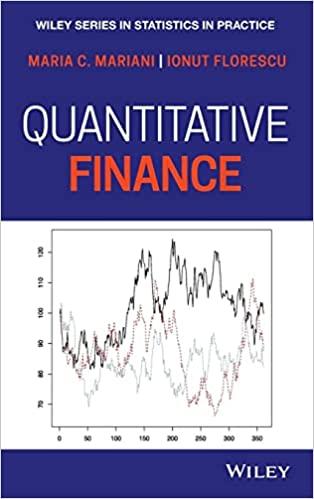Consider a stochastic process such that the underlying security (S) follows the model: [d S_{t}=mu S_{t} d
Question:
Consider a stochastic process such that the underlying security \(S\) follows the model:
\[d S_{t}=\mu S_{t} d t+\sigma_{t} S_{t} d Z_{t}\]
where \(Z\) is a standard Brownian motion. Suppose the variance \(v(t)=\sigma_{t}^{2}\) also follows a stochastic process given by
\[d v_{t}=\kappa(\theta-v(t)) d t+\gamma \sqrt{v_{t}} d W_{t}\]
where \(W\) is a standard Brownian motion. If the correlation coefficient between \(W\) and \(Z\) is denoted by \(ho\),\[\operatorname{Cov}\left(d Z_{t}, d W_{t}\right)=ho d t\]
prove that the generalized Black-Scholes equation is
\[\begin{gathered}\frac{1}{2} v S^{2} \frac{\partial^{2} U}{\partial S^{2}}+ho \gamma v S \frac{\partial^{2} U}{\partial v \partial S}+\frac{1}{2} v \gamma^{2} \frac{\partial^{2} U}{\partial v^{2}}+r S \frac{\partial U}{\partial S} \\+[\kappa(\theta-v)-\lambda v] \frac{\partial U}{\partial v}-r U+\frac{\partial U}{\partial t}=0\end{gathered}\]
Step by Step Answer:

Quantitative Finance
ISBN: 9781118629956
1st Edition
Authors: Maria Cristina Mariani, Ionut Florescu





